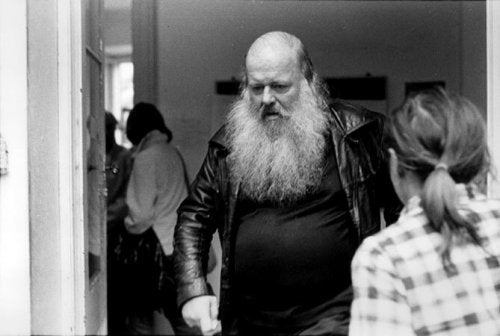David Cooper is considered, along with RDLaing, Thomas Szasz and Michel Foucault, one of the founders of the so-called “Antipsychiatry” movement. This movement was born in the sixties and its main interest was, and remains, to denounce deficiencies, theoretical problems and abuses in the practice of psychiatry.
David Cooper himself studied psychiatry. He has worked in various psychiatric hospitals in London, where he has had direct contact with patients with schizophrenia, from this experience, and thanks to the influence of other thinkers, he has written several books that are currently considered important for the antipsychiatric movement.
- “In reality.
- What is taught.
- Especially children.
- Is not how to survive in society.
- But how to submit to it.
- “David Cooper?.
David Cooper used the first term “antipsychiatry, ” yes?Contrapsychiatry, to refer to this group of intellectuals who found serious theoretical and practical deficiencies in psychiatry. Cooper was the author of several precepts that challenged psychiatry and remain in force today.
David Cooper was born in Cape Town, South Africa, in 1932, adopting British citizenship. In his own words, his family was “common,” so he had no greater concerns during his childhood and adolescence. Cooper studied music but later discovered that his true calling was medicine. He then attended college and graduated in 1955.
At the time, South Africa was at the height of apartheid; Cooper, who was against this segregation, practiced medicine by assisting blacks in medical positions exclusive to this function, then moved to London, where he worked as a psychiatrist in several hospitals.
David Cooper married a Frenchwoman, with which he had three children; later, she had a sporadic sentimental companion Juliet Mitchell, leader of the Anglo-Saxon feminist movement, a specialist in Lacanian psychoanalysis. This relationship had a big influence on Cooper.
David Cooper worked at a psychiatric hospital in London where a famous program was created in Ward 21, which became known as ‘Villa 21’, where he treated a large number of schizophrenic patients, it was this experience that led him to separate completely from psychiatry.
Cooper began to question the arguments of Eugen Bleuler, the main inspiration for psychiatric treatments in vogue at the time, who defended the idea that schizophrenia, or “folie,” as it was called, was not a mental illness, but an experience or a state of transition. Is that some kind of trip? Out of reality.
David Cooper has indicated that there are three types of “madness. “They are as follows:
David Cooper conducted experiments in Villa 21, in fact, he stopped treating a lot of patients, did he say they were going to hell?And he came back. It was a “step to the act. “
Cooper thought that if they returned to the archaic areas of their being, they could improve, which generated a lot of controversy, but at the same time showed that schizophrenia could be cured, which until then was considered impossible.
Since then, David Cooper has become a world leader in antipsychiatry, began working hard to defend his thesis around the world, accompanied by R. D. Laing and Herbert Marcuse.
Later, he moved to Paris, where he worked with personalities such as Michel Foucault, Gilles Deleuze and Robert Castel in favor of human rights, in various fields of the medical and social field.
Little by little he became a kind of symbol of the most disadvantaged people, his image changed, he began to wear a very long beard and exotic clothes, with this he scandalized and fascinated at the same time. He never stopped his efforts to break the patterns of traditional thinking, he died at 55, leaving a permanent mark.

